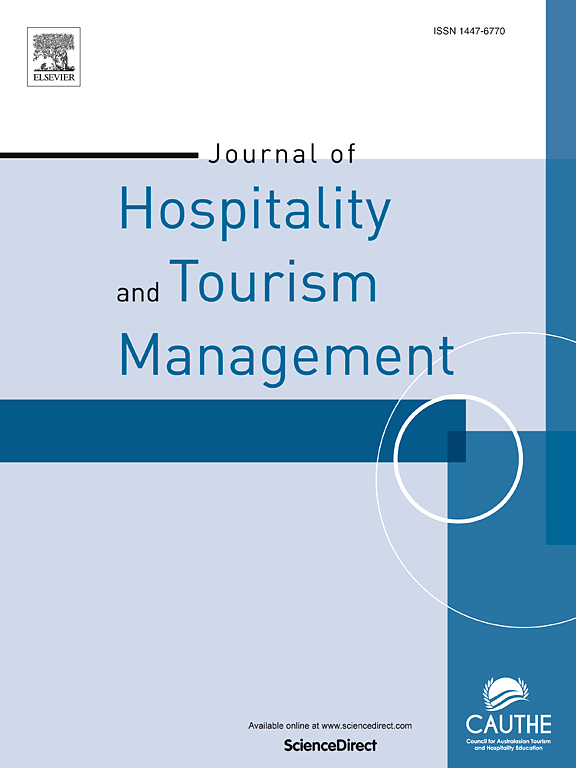资源、能力与行动:探索VUCA环境下民族民宿组织弹性的动态形成过程
IF 7.8
1区 管理学
Q1 HOSPITALITY, LEISURE, SPORT & TOURISM
引用次数: 0
摘要
研究揭示了一个动态的周期框架,包括三个相互关联的阶段:资源激活(“应急动员-快速整合-灵活分配”)、能力建设(“高灵敏度-快速反应-强适应性”)和行动实施(计划、适应和学习行动)。该研究确定了独特的“压缩周期”现象,即在危机条件下,决策-执行-反馈周期从几个月加速到几天。弹性结果表现为三个渐进水平:损害减轻、生存恢复和超越原始状态。文化语境通过传统与现代的统一、个人与集体的统一、地方性与开放性的统一这三种辩证关系,显著地塑造了弹性路径。社会网络激活遵循“亲属支持-熟人互助-陌生人联系”的等级模式,反映了中国传统的“差异关联模式”。关键决定因素包括资源基础深度、动态能力强度和资源行动精度。本研究通过整合资源基础理论、动态能力理论、社会网络理论和组织学习理论,为组织弹性理论做出贡献,揭示了文化嵌入性如何将静态文化资产转化为动态弹性优势。本文章由计算机程序翻译,如有差异,请以英文原文为准。
Resources, capabilities, and actions: Exploring the dynamic formation process of organizational resilience in ethnic village homestays under a VUCA environment
This study investigates organizational resilience formation mechanisms in ethnic village homestays through grounded theory analysis of 34 Tibetan village homestays. The research reveals a dynamic cyclical framework comprising three interconnected stages: resource activation (“emergency mobilization-rapid integration-flexible allocation”), capability building (“high sensitivity-rapid responsiveness-strong adaptability”), and action implementation (planned, adaptive, and learning actions). The study identifies unique “compressed cycle” phenomena where decision-execution-feedback cycles accelerate from months to days under crisis conditions. Resilience outcomes manifest across three progressive levels: damage mitigation, survival recovery, and transcending original state. Cultural context significantly shapes resilience pathways through three dialectical relationships: unity of tradition and modernity, unity of individual and collective, and unity of locality and openness. Social network activation follows hierarchical patterns of “kinship support-acquaintance mutual assistance-stranger connections,” reflecting traditional Chinese “differential mode of association.” Key determinants include resource foundation depth, dynamic capability intensity, and resource action precision. This research contributes to organizational resilience theory by integrating resource-based, dynamic capabilities, social network, and organizational learning theories while revealing how cultural embeddedness transforms static cultural assets into dynamic resilience advantages for small tourism enterprises.
求助全文
通过发布文献求助,成功后即可免费获取论文全文。
去求助
来源期刊
CiteScore
13.30
自引率
8.40%
发文量
177
审稿时长
45 days
期刊介绍:
Journal Name: Journal of Hospitality and Tourism Management
Affiliation: Official journal of CAUTHE (Council for Australasian Tourism and Hospitality Education Inc.)
Scope:
Broad range of topics including:
Tourism and travel management
Leisure and recreation studies
Emerging field of event management
Content:
Contains both theoretical and applied research papers
Encourages submission of results of collaborative research between academia and industry.

 求助内容:
求助内容: 应助结果提醒方式:
应助结果提醒方式:


